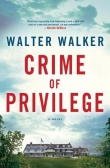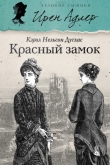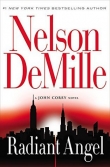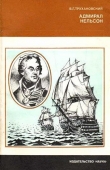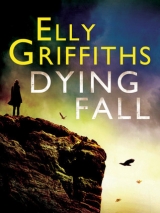
Текст книги "Dying Fall"
Автор книги: Elly Griffiths
Соавторы: Elly Griffiths
Жанр:
Триллеры
сообщить о нарушении
Текущая страница: 6 (всего у книги 20 страниц)
CHAPTER 11
Nelson, though he doesn’t know it, is only a few miles away from his youngest daughter. His mother has insisted on taking him and Michelle to Rook Hall, a nearby stately home. Nelson’s sister, Maeve, has accompanied them, along with her granddaughter, Charlie.
‘Charlie?’ Nelson had said, peering at the blonde moppet in a fairy dress. ‘I thought she was a girl.’
‘Of course she’s a girl, Harry,’ said Maeve, hoisting a nappy bag on her shoulder. ‘Don’t be stupid.’
‘Is it short for Charlotte?’ asked Michelle, crouching down to say hello to the baby.
Maeve had shrugged. ‘Not as far as I know.’
Nelson can never get used to these new androgynous names. He has a colleague with daughters called Georgie and Sidney. At least Judy had chosen a traditional name for her baby. Michael. But why does that name choice make him feel uneasy?
He also can’t get used to his sister being a grandmother. But since Maeve, at fifty-three, is ten years older than him, she’s not especially young to have grandchildren. Her daughter, Danielle, had married at twenty-three and had Charlie at twenty-five. All very respectable. It’s just that it makes Nelson feel old. He’s a great-uncle now. Jesus wept.
Maeve seems to do most of the childcare while Danielle is out at work. Nelson’s mother helps too, still fit at seventy-five. She now looks critically at Charlie’s uncovered head.
‘She needs a sun hat on her, Maeve.’
Maureen Nelson’s voice is still unashamedly Irish after five decades in England. Her daughter, on the other hand, is broad Lancashire. The first thing Maeve had said to Nelson was, ‘You’ve lost your accent.’
‘I haven’t!’ said Nelson, outraged. His colleagues in Norfolk think that he talks like a combination of Peter Kaye and Wallace from Wallace and Gromit. He’s heard them imitating him.
‘You have a bit, Harry,’ said Michelle. ‘So have I.’
And that’s always the pattern of visits to Blackpool. Michelle is continually shocked at the abuse directed at Harry by his ever-loving mother and sisters. She throws herself into the breach as a peacemaker, not realising that all four of them actually enjoy these exchanges.
Now Maeve snaps at her mother. ‘She’s fine, Mum. The sun’s not out anyway.’
‘It’s not the sun that gives you heatstroke,’ says Maureen unanswerably. Maeve rolls her eyes and wheels Charlie off in the direction of the gift shop.
Rook Hall is a perfect Georgian house, almost scarily symmetrical, set in beautiful landscaped grounds. Nelson doesn’t mind trudging round over-decorated rooms and oohing and aahing over dovecotes and lily ponds but he does wonder why, in her seventies, his mother has suddenly got into culture. When he was growing up, Maureen would have been actively suspicious of anyone whose idea of a good time was visiting National Trust properties. He still remembers what she said about their neighbour who listened to classical music. But now Maureen is actually a member of the National Trust as well as a friend of the local theatre and a frequent operagoer. Do you just get more interested in these things as you get older? Nelson, remembering a God-awful modern play Michelle made him see two years ago, doesn’t feel that the process has started with him.
In one aspect, though, Maureen hasn’t changed at all. She is determined to get her money’s worth and to see every inch of the house, even though she has visited many times before. Maeve soon gives up and takes Charlie out into the grounds but Nelson and Michelle follow Maureen’s indomitable figure through dining rooms laid for some invisible banquet, up and down ornate staircases (marvelling at the rococo ceilings), through kitchens complete with plastic meat that reminds Nelson of an autopsy, and into myriad rooms whose only function seems to be to display collections of eighteenth-century thimbles.
Nelson is soon tired of ancestral portraits and moulded cornices. His mind starts to wander, reliving his conversation with Sandy yesterday. Was Dan Golding murdered and, if so, what does Ruth expect him to do about it? Where is Ruth anyway? He rang her at home last night and there was no answer. He’ll have to try her mobile. He still has to be careful where Ruth is concerned. Michelle might have forgiven him for the affair (if two nights counts as an affair, which Michelle assures him it does) but the subject is still very raw. Michelle understands that he wants to see Katie (and few wives would understand as much, he knows) but any sign that he is interested in the mother rather than the baby would jeopardise the whole, fragile consensus.
He thinks they’ve finished but, at the last moment, Maureen leads them up another staircase into a green and white room that reminds Nelson of a Wedgewood vase he once impounded as stolen goods. Bored, he looks out of the window, wondering if he can catch sight of Grandma Maeve and Charlie.
As he scans the paths criss-crossing the lawn at the front of the house, his eye is immediately drawn to a figure with a pushchair. But it’s not Maeve. It’s a man in a flapping cloak-like jacket with long grey hair in a ponytail. Nelson rubs his eyes. He must be going mad because, for a moment, he thought that the man with the baby was Cathbad.
*
Ribchester is a picturesque town nestling in a bend in the river. Ruth is beginning to realise that Nelson was speaking the truth when he once told her that there were pretty places near Blackpool. Preston isn’t one of them but Lytham is certainly an attractive town and the Pendle Forest – well, if she had nightmares last night about Dame Alice and her familiar, that’s not the fault of the countryside, which was undeniably beautiful. Ribchester is cosier – grey stone houses looking as if they’ve grown there rather than been built, a church, pubs, the winding river – it’s all very English and tranquil.
Clayton Henry parks his car, a sporty red number, behind the church.
‘The church was actually built slap-bang on top of the Roman fort,’ he says, ‘You can see the remains of a granary in the graveyard. The baths are behind one of the pubs. The White Bull.’
As they walk around the town, Ruth begins to realise that the Romans are living side-by-side with modern-day Ribchester. The White Bull has ornate pillars at the front, said to be taken from the Roman fort. Terraced houses have Roman walls in their gardens and the church shares its graveyard with medieval tombs and more recent excavations showing floors and hypocausts.
‘The museum’s next door,’ says Henry, stepping carefully over a gravestone. ‘There are lots of wonderful things there.’
‘The Ribchester helmet?’ asks Ruth, remembering something she once read.
‘A replica,’ says Henry. ‘The original’s in the British Museum.’
He leads the way through a low gate and along a lane overhung with brambles and cow parsley. ‘Dan’s excavations centred on a spot further down the river,’ he says. ‘You don’t mind a short walk, do you?’
Ruth wonders how short a short walk is. She likes walking only in moderation. Something Max and Nelson have in common is that they are always striding off without looking back to see if she is following. One day she won’t be.
She is also worried about getting back to Kate. She rang Cathbad from the university, saying she was going to be longer than she’d thought and he’d been unconcerned. ‘I’ll take Kate out for a bit, explore Lytham,’ he’d said. ‘Take your time.’ Cathbad really is the king of the walkers, covering miles in a day, sometime walking all night, across dark fields and through shuttered towns. He used to be a postman, he explained once, and that taught him the value of exploring places on foot. ‘You see more,’ he says, ‘At eye level.’ Ruth hopes he won’t take Kate too far.
But Clayton Henry does not look like much of a rambler. He looks essentially urban, dressed in a pink shirt and freshly ironed chinos with distinctly unhikerish shoes, pointed and highly polished. Ruth doesn’t imagine that he will drag her miles over fields and stiles. In fact, he seems out of breath by the time they reach the river.
‘Not far now,’ he pants.
The river is obviously on its last lap before the sea, looping extravagantly across the fields, dotted with little islands and crescent-shaped pools. Sheep graze on the flat ground between the loops and, in the distance, Ruth can see a black shape, half lost in the clouds.
‘Is that Pendle Hill?’ she asks, thinking that she knows the answer.
‘Yes,’ says Henry. ‘Have you been up there? There’s a grand view, but it’s a bit spooky, to my mind.’
‘I went there yesterday. I’ve got a friend who lives near Fence.’ She hesitates, aware that ‘friend’ doesn’t really cover her tenuous connection with Pendragon.
‘Sooner him than me,’ says Henry. Ruth thinks it’s interesting that he assumes the friend must be male.
Birds swoop low over the water, reminding Ruth once again of the Saltmarsh. She wonders what this area was like in Roman times. The river would still have been here, though its course may well have changed; it would have been a valuable link in the supply chain, carrying goods inland, and back out to sea towards other parts of the great Empire. When the Roman troops left, the ships would no longer have come into port, laden with wine, olive oil and pottery – that distinctive orangey-red Samian ware found on the site at Swaffham. Was this where Arthur made his last stand, abandoned by Rome, beset on all sides by invading Picts and Celts?
‘Here we are,’ says Henry.
They are on slightly higher ground, a field just outside the wall of the church. The excavation, which is about ten feet across, includes walls and some tesserae, which could have formed part of a mosaic. In one corner a tarpaulin covers what is obviously a deeper hole. Ruth wonders how long ago it was that Dan dug here. The excavation has a lonely look, outside the city walls. Sheep are cropping the grass near the exposed stones.
‘The Roman Road was near here,’ says Henry. ‘Funny how place names survive. There’s a village nearby called Street and the road across the bridge is still called the Roman Road.’
Ruth knows that the word ‘street’ comes from the Latin ‘strata’, meaning layer, and refers to the many layers that went into constructing a Roman road, one of the wonders of that empire.
‘So the temple would have been on the road to the port?’ she says.
‘It looks like that, yes,’ says Henry. ‘There’s another temple at Ribchester with altars dedicated to Apollo and Victory. Just what you’d expect. But Dan thought this was later. Mid to late 400s, he reckoned.’
Ruth looks down at the ancient walls, exposed to the wind and the air. It is generally thought that the Romans left Britain between 383 and 410 AD, which would mean that this temple was built after the withdrawal, in the mysterious world of warring tribes, the battle for the soul of Britain, the beginning of the Dark Ages. It would also fit that, whoever lay in this tomb, he was buried rather than cremated. By the first century AD, cremation was already a thing of the past. Her heart beats faster. A temple, built in the Roman style, dedicated to an unknown god – even without King Arthur, this is a thrilling discovery.
‘The sarcophagus was here,’ says Henry, lifting a corner of the tarpaulin. ‘Buried about six feet down, under the central altar. The lid was broken, but the piece with the inscription remained almost intact.’
‘Where is it now?’ asks Ruth, peering into the trench. She can see the shape of a burial cut into the surrounding soil, a deep rectangular void, and some pieces of heavy stone. Nothing else.
‘At the university,’ says Henry. ‘We have a strong-room there. We would have used it for the bones but we felt they needed … well, special treatment.’ Ruth turns to look at him. She wonders why he is being so shifty about the excavation. Did something go wrong?
‘There were a few other significant finds,’ he says, rather hurriedly. ‘A carving of a raven with the words Bran and Corvus below it, and a great deal of skeletal matter.’
‘Human skeletal matter?’
‘No, avian. It looks as if a number of birds were sacrificed here.’
Offerings to the Raven King, thinks Ruth. She looks around her, at the marshy plain with the wide sky high above. Seagulls are hanging in the air, black against the clouds. If you had to invent a spot for a temple dedicated to a strange pagan bird-deity, this would be the place for it.
Clayton Henry is still looking slightly embarrassed. He stoops down to brush the mud off his cream trousers. Ruth wonders if he is going to change the subject, but even so she is surprised when what he actually says is, ‘Would you like to come to a barbeque at my house on Saturday?’
‘Thanks,’ stammers Ruth. ‘But I’ve got my daughter with me and … and a friend.’
‘Bring her too,’ says Clayton breezily, leaving Ruth to ponder, once again, on his choice of pronoun.
*
Nelson rings just when Ruth is getting into her car. Clayton had driven her back to the university and she is keen to get back to Kate. In fact she almost doesn’t answer the phone.
Nelson, typically, goes straight onto the attack.
‘Where have you been?’ he says. ‘I’ve been ringing your home number for days.’
‘I’m on holiday. Just for a week or so.’
Thank God he doesn’t ask where, instead he says, ‘With Katie?’
‘Of course with Kate.’ What does he think she’s done, thinks Ruth, left Kate at home with a week’s supply of nappies? Asked Bob Woonunga to look after her as well as Flint, putting food for them both through the cat flap? And why can’t he ever bloody well get her name right? But she does feel slightly uncomfortable as she’s not sure why she hasn’t told Nelson that she’s in Lancashire. He has a right to know where Kate is, after all. Is it because she thinks it will seem as if she’s stalking him? Is she stalking him?
‘I talked to Sandy about your friend Dan Golding.’
‘What did he say?’
‘The fire was definitely arson. Someone pushed petrol-soaked rags through the letterbox.’
‘Oh my God. Why would anyone do that?’
‘Well, Sandy says there are some funny things going on at Pendle University.’
‘What sort of things?’
‘Racist groups. Neo-Nazis. White supremacists. They’ve had trouble on campus before.’
‘But why would white supremacists want to kill Dan?’
‘I don’t know. Sandy thought maybe because he was Jewish.’
Ruth thinks of her easy-going friend Dan. Can he really have been killed for this most horrible of reasons? She’s not a stranger to racism, she was brought up in Eltham, a south London borough that has its share of such problems. She had already left home by 1993 when a black student called Stephen Lawrence was killed by a gang of white thugs, but she remembers many smaller incidents, taunts in the playground, graffiti on walls, a general sense of anger, bitterness and frustration. She’s seen racism in Norfolk too, mainly directed towards Eastern European incomers, but somehow she never thought it would happen at Pendle and certainly never to Dan.
‘Anyway,’ Nelson is saying, ‘Sandy’s going to do some investigating. I’ll let you know how he gets on.’
‘Thanks,’ says Ruth. ‘How’s your holiday?’
Nelson grunts. ‘OK. My mum and sisters are driving me mad.’
‘Happy families.’
He gives a short laugh, then says. ‘Funny thing, Ruth. I was at Lytham today and I thought I saw Cathbad.’
‘Cathbad?’ echoes Ruth rather wildly.
‘Yeah. Cathbad pushing a pushchair. Crazy, eh?’
CHAPTER 12
Clayton Henry turns out to live in a converted windmill just outside Kirkham, another picturesque town on the Roman road to Ribchester. Ruth, expecting a few charred sausages washed down with warm wine, is amazed to see a marquee, a bouncy castle and what looks like liveried staff carrying trays of champagne glasses.
‘Bloody hell,’ says Cathbad, as they park behind two Porsches and an Alfa Romeo. ‘Is it a wedding?’
‘He said barbeque,’ says Ruth, getting Kate out of her car seat. Kate looks up at the pink castle swelling out of the side of the windmill.
‘Balloon,’ she says, in wonder.
Ruth feels rather embarrassed, turning up with Kate and Cathbad in tow. She doesn’t know quite why she accepted Clayton’s invitation in the first place. For years, her instinct has been to start inventing excuses at the first mention of the word ‘party’. What an earth has made her become sociable in her old age? Partly it’s curiosity. She wants to meet Dan’s colleagues. Up until now she has been unable to imagine her glamorous friend in the grim surroundings of the cigarette factory or even digging outside the city walls in Ribchester. Maybe the party will shed some light on Dan’s decision to abandon the dreaming spires for a shabby ex-polytechnic. And Cathbad had been keen to come. Unlike Ruth, he enjoys a party and she feels that he deserves some fun. He has been sweet to her over the last few days, looking after Kate, cooking for them all, asking interested questions about the finds at Ribchester. But it makes her sad to see him so muted and domesticated. He has even stopped wearing his cloak. Maybe a party will awaken the old, eccentric, libation-loving Cathbad.
All the same, as they walk towards the windmill, she wishes they didn’t look so much like a couple. But Kate insists on holding one of Ruth’s hands and one of Cathbad’s so that they approach the house as a unit – man, woman and child. It’s like an advertisement for a company strong on family values but weak on style. And that’s another thing; she’s wearing the wrong clothes. Cotton trousers and loose top are OK for a family get-together but all wrong for a party with waiters. As they walk through a rose-strewn archway into the garden all Ruth can see are women in flowery dresses. Although it’s a cool summer’s day, there seems to be an abundance of flesh on show – spaghetti straps, Lycra minis, strapless midi dresses. She sees men in striped blazers, women in hats. No one else is wearing beige cotton trousers.
‘Ruth!’ Clayton Henry comes towards them, resplendent in a Hawaiian shirt and white trousers.
‘Hi.’ Ruth has brought a bottle, which seems wrong now. She pushes it into Henry’s hands nonetheless.
‘How kind.’ He looks around for somewhere to put it.
‘This is Cathbad,’ says Ruth, ‘my friend. And Kate, my daughter.’
‘Pleased to meet you.’ Cathbad and Henry exchange a hearty handshake though Ruth thinks there is something watchful about both men, as if they’re summing each other up.
‘Cathbad, did you say?’
‘Yes,’ says Cathbad modestly. ‘It’s a druidical name.’
‘How fascinating,’ says Henry and looks as if he’s going to say more, but at that moment a glamorous woman with long blonde hair floats out of the house.
‘Darling, have you seen the …’ She stops.
‘Pippa,’ says Henry, with apparent delight. ‘Do come and meet Ruth and Cathbad and their little girl. This is Pippa, my wife.’
If Clayton Henry is making assumptions about Ruth, Ruth realises that she has been guilty of the same crime. Without thinking much about it she had assumed that Henry, with his soft voice and pointed shoes, must be gay. She could just about imagine him married to some plump Bohemian type but not this willowy beauty with model-girl hair and the kind of shoes that make Ruth nervous. Apart from anything else, Pippa Henry is at least four inches taller than her husband.
She seems very friendly though, kissing Ruth on the cheek and bending down to talk to Kate.
‘Would you like to go on the bouncy castle, sweetheart?’
Kate, perhaps, like her mother, intimidated by glamour, hides behind Ruth. A white fluffy dog appears from nowhere and starts barking furiously. Pippa Henry scoops it into her arms.
‘What a lovely poodle,’ says Ruth, drawing Kate away.
‘Actually it’s a bichon frisé.’
Of course it is.
In the end Ruth takes Kate onto the bouncy castle. This is the great thing about having a child, she thinks, grabbing a glass en route. You can escape to play with them and no one thinks you’re unsociable, they just think you’re a great mother. Ruth watches Kate bouncing on the Barbie castle, sips champagne and thinks that she wouldn’t mind if she spent the entire afternoon like this. Across the lawn, she can see Cathbad chatting animatedly with Pippa. He has always been susceptible to pretty women. She hopes Pippa will take his mind off Judy for a bit. Still, she’d better corner him before long and establish who’s driving home. God, they really are getting like a married couple.
‘Ruth?’ says a voice in her ear.
She swings round to see a pleasant-faced man of about her own age, with thinning sandy hair and a hesitant smile.
‘I hope you don’t mind me introducing myself but Professor Henry said that you were a friend of Dan’s.’
‘Yes, I was,’ says Ruth, thinking that the past tense is both sad and appropriate. She was a friend of Dan’s in the past, when they were both young.
‘I’m Sam,’ says the man, extending a hand. ‘Sam Elliot. I was a friend of his too. I just can’t believe that he’s gone.’
‘Nor can I,’ says Ruth. ‘I hadn’t seen him for ages but even so …’ Her voice dies away. Suddenly, surprisingly, she feels close to tears and has to cover up by checking on Kate, who is sitting on the very edge of the pink castle, rocking to and fro while the other children caper around her.
When she turns back, Sam Elliot is also looking sombre but he smiles when he sees her looking at him. His face isn’t made for sadness, all the lines go upwards. Ruth can easily imagine him being friends with Dan.
‘This is quite a party,’ she says.
‘Yes,’ says Sam. ‘It’s a yearly event, Clayton’s barbeque. He always has a big do at Christmas as well.’
Ruth tries to imagine Dan at one of Clayton Henry’s parties, playing the piano, drinking champagne, flirting with the prettiest women. She remembers him as something of a party animal and says as much to Sam.
‘Funny,’ he says. ‘I think of Dan as rather quiet. Always friendly but a bit aloof until you got to know him. Were you at university with him?’
‘Yes, at UCL.’
‘I was at Leeds,’ says Sam. ‘It seems a hundred years ago now. Mind you, a hundred years is nothing to an archaeologist, is it?’
‘Are you an archaeologist?’
Sam shakes his head. ‘I teach modern history. I was one of Dan’s colleagues. As Clayton may have told you, we cover everything from Boadicea to Adolf Hitler.’
‘I’m a teacher too,’ says Ruth. ‘I teach forensic archaeology at North Norfolk.’
‘I know,’ says Sam. ‘Clayton said you’d come to look at Dan’s discovery.’
‘Oh, do you know about that?’ asks Ruth, surprised. From Clayton’s manner, she had assumed that the whole thing was a deadly secret although, come to think of it, Dan could never have managed an excavation that size without some help.
Sam’s reply confirms this. ‘I was on the first dig with Dan,’ he says. ‘We were all volunteers then. Later he got a grant and was able to get the professionals in. It was really exciting though, when we first realised that there was something important buried there.’
Ruth knows this excitement well. She remembers when they had first discovered the wooden henge on the beach in Norfolk. The incredible feeling of something rising from the ground, something that had been hidden from sight for thousands of years, the sense of looking at the world through ancient eyes. All the same, she wonders exactly how much Sam knows.
‘Did he tell you about the bones?’ she asks.
‘Bones?’ says Sam. ‘Oh, they found a tomb, didn’t they? That was later. When I was digging Dan was just happy to have found the temple. The Temple of the Raven God. He was going to write a book about it.’
So Sam didn’t know about King Arthur. For reasons of his own, Dan had kept that quiet. But he had still been excited enough to think about writing a book. Did he start the book and, if so, where is it now? On the missing laptop, she supposes.
‘The Temple of the Raven God?’ says a mocking voice. ‘What nonsense are you talking now, Sammy?’
A man and a woman are walking towards them. They look like something out of Brideshead Revisited, the man in white trousers and shirt, the woman in a short, rose-patterned dress that makes Ruth feel about a hundred stone.
‘Hi, Elaine,’ says Sam without enthusiasm. ‘Hello, Guy.’
‘Aren’t you going to introduce us?’ says Elaine. Close up, she isn’t so gorgeous. Her hair is dyed blonde and her eyes are too close together.
‘This is Ruth Galloway from the University of North Norfolk.’
‘Oh,’ says Elaine, eyes widening. ‘The famous archaeology expert.’
Ruth registers the mockery but elects to take this at face value.
‘That’s right,’ she says.
‘You’ve come to look at the bones,’ says Guy. His voice is an elaborate upper-class drawl, with traces of Lancashire still clinging to the vowels. Ruth wonders if he was really christened Guy.
‘I didn’t know there were any bones,’ says Sam.
‘Sammy doesn’t know anything about real history,’ says Elaine to Ruth, ‘he only knows about the Second World War and the rise of communism in China. Stuff like that.’
Sam laughs but Ruth thinks he looks rather hurt.
‘It’s a really important discovery,’ says Guy. Something in his tone makes Clayton Henry, who is a few feet away, look over towards them. Ruth thinks that he is going to intervene, but at that moment Kate causes a distraction by falling off the bouncy castle and bursting into noisy tears.
*
Elaine and Guy are post-graduate students. Clayton explains this as they eat lunch in the marquee. There are tables inside too but Ruth elected for the outdoors in case Kate starts one of her food-throwing fits. At the moment, though, she is being angelic, eating potato salad and actually using her spoon. She looks like Little Miss Muffet.
‘We don’t get many graduate students these days, I’m afraid,’ says Clayton, throwing a piece of chicken skin to the drooling bichon frisé. ‘Young people just aren’t interested in history because there’s no money in it. But Guy is very able. He’s ex-Oxbridge actually. Could have had his pick of post-grad places but he chose us. Never really knew why.’ He laughs heartily.
‘What about Elaine?’
Clayton must have detected something in her tone because he looks up, the shrewdness of his expression not completely undermined by the blob of coronation chicken on his chin.
‘You mustn’t take Elaine the wrong way. She’s got an odd manner but she’s a dear girl underneath, a real sweetie.’
Ruth thinks she will reserve judgement on this but nothing in the prancing figure she can see laughing uproariously in the garden, surrounded by admiring men, makes her think ‘sweetie’ exactly.
‘They were talking about Dan’s dig,’ she says. ‘The Temple of the Raven God.’
‘Guy was very involved with the investigations. They both were.’
‘What about Sam?’
‘Sam Elliot? No, he’s a modern history man. He was great friends with Dan though. Devastated at his death. Well, we all were.’
Anything less devastated than the laughing, champagne-swilling crowd in the marquee would be hard to imagine. Still, Ruth supposes that they were upset at the time.
She takes another mouthful of salmon. The food is really delicious, though this hasn’t stopped Kate picking all the spring onions out of the salad and putting them on Ruth’s plate. Now Kate is feeding cocktail sausages to the dog.
‘Don’t,’ says Ruth. ‘It might make him sick.’
‘It won’t,’ says Clayton. ‘He eats what he likes. Spoilt little beggar.’
‘What’s his name?’
‘Willoughby. Don’t blame me. It was Pippa’s idea.’
‘It’s a great name,’ says Ruth. ‘We met a dog called Thing the other day.’
‘Thing,’ repeats Kate, patting Willoughby on his curly top-knot.
‘How old is she?’ asks Clayton.
‘Nearly two,’ says Ruth. ‘Do you have children?’
‘Sadly not,’ says Clayton, looking anything but sad. ‘I’ve got a stepdaughter, though, Chloe. She’s away at uni at the moment but I’m a doting dad, I promise you.’
So Pippa was married before. Ruth tries, and fails, to imagine the path that led her to Clayton Henry. She also wonders what happened to Chloe’s father if Clayton can refer to himself as ‘Dad’. Maybe he died and Clayton provided a shoulder to cry on. It’s hard to imagine any other circumstances in which the affable, but distinctly rotund, Clayton would end up with the beautiful Pippa. Still, there’s no doubt that they look happy together and the house is fantastic (she’s had the tour). Cathbad had been delighted to discover that it was built on the site of an old plague pit. He’s probably off somewhere now, communing with the unquiet spirits. She hasn’t seen him for ages.
‘Must be hard,’ says Clayton. ‘Combining motherhood with work. How do you and Cathbad manage?’
She really must get this straight. ‘We’re not together,’ she says. ‘We’re just friends. Cathbad isn’t Kate’s father.’
‘Oh …’ Clayton looks intrigued, his eyes bright, but Ruth has no intention of saying any more.
‘I’m looking forward to seeing the bones on Monday,’ she says.
Clayton shudders. ‘You forensics girls are always so bloodthirsty.’
Ruth is annoyed at being called a girl. ‘I hardly think there’ll be any blood,’ she says coldly.
‘No. Just a pile of dry bones,’ says Clayton. ‘But you can tell everything from bones these days, can’t you?’
‘I wouldn’t say that,’ says Ruth cautiously. ‘Accuracy of tests vary. Carbon 14 tests can be out by as much as hundreds of years. They can be affected by sun spots, solar flares, nuclear testing – things like that. Isotopic analysis should be able to tell us where the individual was born, judging by the chemicals present in the bones.’
‘And how accurate is that?’
‘Usually pretty accurate. Analysis of calcified tissue gives a good indication of the palaeodiet.’
‘Paleo what?’
‘What the individual ate,’ explains Ruth, adding a cheese roulade to her palaeodiet. ‘By using oxygen isotope analysis we can get information on diet which can then point to the region where this man or woman originated and perhaps where they spent their last years.’
‘Why do you say “or woman”? Dan was pretty sure it was a man.’
‘I’m sure he was,’ says Ruth. ‘It’s just … I was caught out that way myself once.’
Clayton laughs. ‘Be a great thing if King Arthur turned out to be a woman. It’d make the papers all over the world. The feminists would love us. I’d be rich.’ He corrects himself. ‘The university would be rich.’


